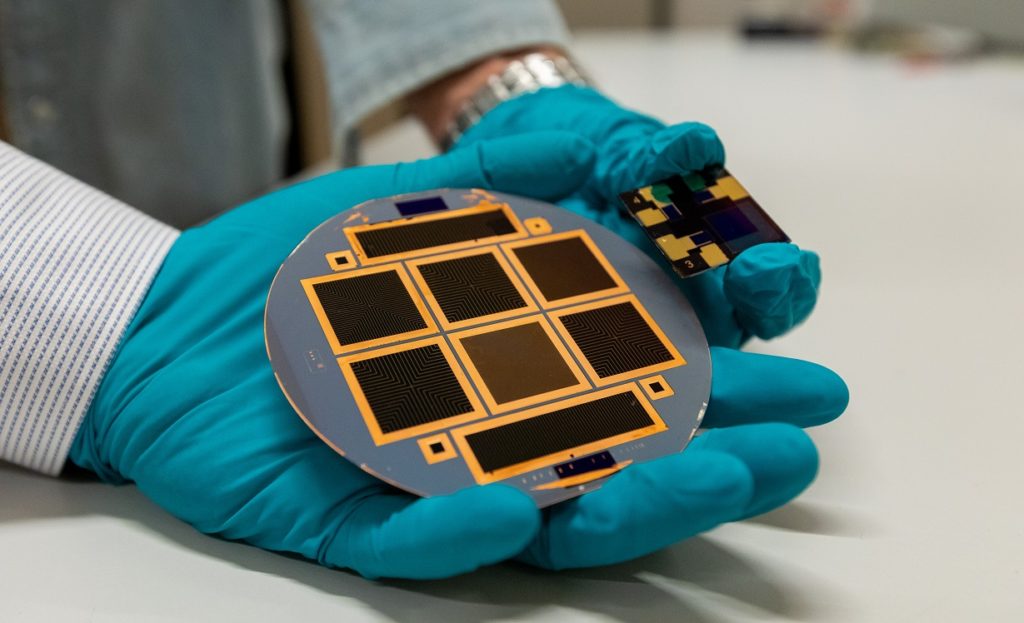
Heterojunction cell and module manufacturer Meyer Burger has established a new series of partnerships to research and develop perovskite tandem solar technology, with a view to bringing the technology to industrial scale.
The Switzerland-headquartered company will partner with the Swiss Centre for Electronics and Microtechnology (CSEM), Helmholtz-Zentrum Berlin (HZB), Fraunhofer ISE and the University of Stuttgart to pursue industrialised perovskite production and greater efficiency in future PV modules.
Unlock unlimited access for 12 whole months of distinctive global analysis
Photovoltaics International is now included.
- Regular insight and analysis of the industry’s biggest developments
- In-depth interviews with the industry’s leading figures
- Unlimited digital access to the PV Tech Power journal catalogue
- Unlimited digital access to the Photovoltaics International journal catalogue
- Access to more than 1,000 technical papers
- Discounts on Solar Media’s portfolio of events, in-person and virtual
Or continue reading this article for free
Meyer Burger said that the work with the new consortium is based on its existing collaborations for the development of heterojunction cells. The company previously worked with Oxford PV on a partnership to develop perovskite-on-silicon tandem technology, but this partnership ended abruptly in 2021 when Oxford PV pulled out of the agreement. The UK-based company became a merchant heterojunction/perovskite solar cell manufacturer in 2019.
Meyer Burger also said that, in partnership with CSEM, it has already achieved 29.6% energy efficiency for a 25cm2 perovskite tandem cell, by combining silicon heterojunction cells with perovskite structures.
“This outstanding result demonstrates the potential of silicon perovskite tandem cells to achieve high efficiencies. Although we still have a lot of work ahead of us, the industrialisation of solar cells with an efficiency of over 30% is on the right track,” said Christophe Ballif, director of sustainable energy at CSEM.
In October, researchers claimed that a record of 30.1% efficiency had been achieved for four-terminal perovskite-silicon tandem PV cells. HZB claimed that it has achieved a record in excess of 31% efficiency in laboratory tandem solar cells, and that its partnership with Meyer Burger will look to bring these results to the manufacturing of commercial products.
Marcel König, head of research and development at Meyer Burger said: “With a long tradition of proprietary development, Meyer Burger has an extensive portfolio of processes, technologies and production techniques at its disposal for the potential mass production of tandem solar cells and modules in-house.”
Perovskite tandem cells suffer from high levels of degradation with increases in size. Research is ongoing across Europe into finding ways to scale perovskites, such as the recently announced PEPPERONI consortium run by HZB and solar manufacturer Qcells.
“The aim is for perovskite/silicon modules to meet the high standards of reliability and longevity set by classical silicon PV technology,” said Andreas Bett, director of Fraunhofer ISE.
A recent study by researchers in Germany found that perovskite-on-silicon PV modules are more environmentally advantageous across their lifecycle than traditional PV modules.
